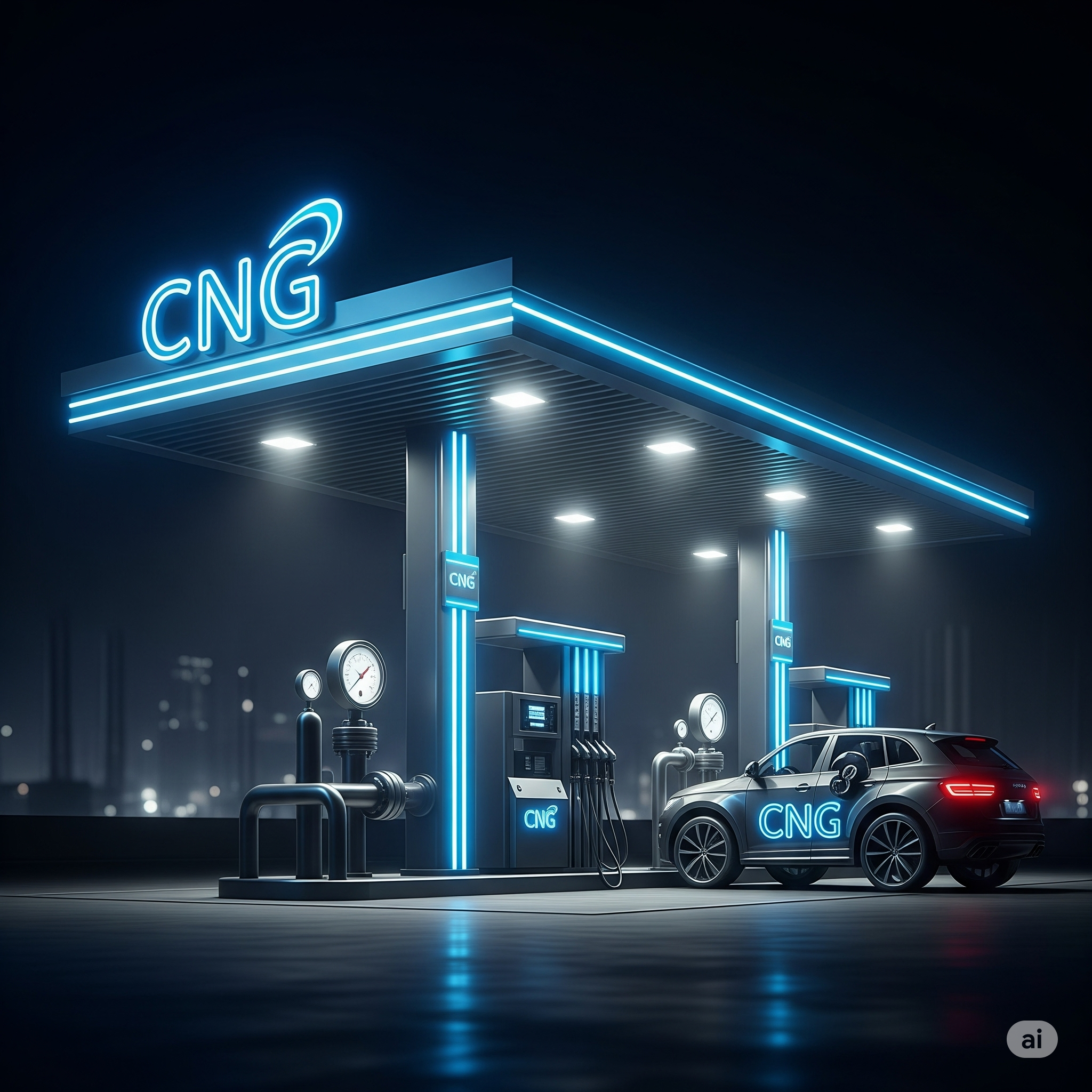Introduction
Compressed Natural Gas (CNG) has emerged as a pivotal alternative fuel in the global energy landscape. Its affordability, lower emissions, and increasing government support have positioned CNG as a practical solution for sustainable transportation and energy diversification. Beyond environmental benefits, the CNG industry presents substantial investment and employment opportunities across the value chain, ranging from production and infrastructure development to vehicle manufacturing and maintenance services. This article explores the economic potential, career avenues, and business prospects within the CNG sector, particularly in India, while also drawing insights from global trends.
1. Overview of the CNG Industry
1.1 Global CNG Market
Globally, countries such as Argentina, Iran, Pakistan, Brazil, and China have successfully integrated CNG into public transport and private vehicle fleets. The market growth is driven by:
- Rising fuel prices
- Government incentives for cleaner fuels
- Urban air pollution control measures
- Technological advancements in CNG engines and refueling infrastructure
The global CNG vehicle fleet is estimated at over 25 million vehicles, with strong growth projections due to increasing environmental regulations and cost considerations.
1.2 CNG in India
India’s CNG industry has grown rapidly over the last two decades. Major milestones include:
- Expansion of City Gas Distribution (CGD) networks in over 130 cities
- Conversion of public buses and taxis to CNG in metropolitan areas
- Incentives for automakers to produce CNG-compatible vehicles
- Promotion of cleaner fuels under government schemes such as FAME and National Electric Mobility Mission
India’s CNG sector presents an attractive investment destination due to rising fuel demand, favorable policies, and growing consumer awareness of environmental sustainability.
2. Investment Opportunities in the CNG Industry
2.1 Infrastructure Development
The backbone of the CNG industry is its infrastructure, offering multiple avenues for investment:
2.1.1 CNG Refueling Stations
- Overview: CNG stations are essential for vehicle adoption. Each station requires land acquisition, storage tanks, compressors, dispensers, and safety systems.
- Investment Potential: Establishing a CNG station involves initial capital expenditure but offers steady returns due to recurring fuel sales.
- Franchise Opportunities: Investors can partner with established energy companies like Indian Oil, Bharat Gas, and GAIL to operate stations under franchise agreements.
2.1.2 Pipeline Networks
- City Gas Distribution (CGD) Pipelines: Investors can participate in the laying and maintenance of pipelines that transport natural gas from production centers to urban distribution hubs.
- Revenue Streams: Earnings can be generated through transmission fees, maintenance contracts, and government-backed projects.
2.2 Vehicle Manufacturing and Conversion
2.2.1 CNG Vehicle Production
- Automobile manufacturers are increasingly producing factory-fitted CNG models. Investment opportunities exist in joint ventures, component manufacturing, and R&D for CNG engines.
- Opportunities include the production of dual-fuel systems, lightweight cylinders, and emission-compliant engines.
2.2.2 Vehicle Conversion Kits
- Existing petrol/diesel vehicles can be retrofitted to run on CNG.
- Companies manufacturing and installing conversion kits can tap into a growing consumer base, particularly in urban areas with limited CNG penetration.
2.3 Renewable CNG (RNG) and Biogas Integration
- Investment in renewable natural gas (RNG), produced from organic waste, animal manure, and agricultural residues, is an emerging segment.
- RNG can be compressed to CNG standards, offering an eco-friendly and sustainable fuel source.
- Investors can explore opportunities in biogas plants, RNG compression facilities, and integration with municipal waste management programs.
2.4 Ancillary Services
Beyond primary production and refueling, ancillary services also provide investment avenues:
- Maintenance and Servicing: CNG vehicles require specialized servicing and periodic inspection of high-pressure cylinders.
- Safety Equipment Manufacturing: Sensors, leak detectors, and safety valves for CNG systems are in high demand.
- Logistics Support: Transport and storage of CNG cylinders and refueling equipment create supply chain business opportunities.
3. Employment Opportunities in the CNG Sector
The CNG industry generates employment across multiple domains, offering both skilled and unskilled job opportunities.
3.1 Engineering and Technical Roles
- Pipeline Engineers: Design, installation, and maintenance of CGD networks
- Mechanical and Electrical Engineers: Work on compressors, dispensers, and fueling stations
- Vehicle Technicians: Skilled workforce for manufacturing, servicing, and conversion of CNG vehicles
- Safety and Compliance Experts: Ensuring adherence to safety standards and regulatory requirements
3.2 Management and Operations
- Project Managers: Oversee establishment of refueling stations and pipeline projects
- Business Development Executives: Identify investment and partnership opportunities
- Supply Chain and Logistics Managers: Handle transport, storage, and distribution of CNG
3.3 Research and Development
- Fuel Efficiency Experts: Innovate CNG engines for higher performance
- Environmental Scientists: Optimize CNG and RNG integration to minimize environmental impact
- Material Scientists: Develop safer, lightweight cylinders and storage solutions
3.4 Direct Employment through Fuel Stations
- CNG stations provide jobs for station managers, attendants, and administrative staff.
- These roles, though often entry-level, can grow into skilled positions with training and experience.
4. Economic and Social Impact
4.1 Contribution to GDP
Investment in the CNG industry stimulates economic activity through infrastructure development, vehicle production, and service provision. It contributes to GDP growth by creating a new energy sector that attracts both domestic and foreign investors.
4.2 Employment Generation
- A single CNG station can generate 10–15 direct jobs and several indirect jobs in logistics and maintenance.
- Large-scale CGD projects provide long-term employment in engineering, project management, and technical services.
4.3 Environmental and Health Benefits
- CNG vehicles reduce urban air pollution, lowering healthcare costs related to respiratory diseases.
- Cleaner fuels improve quality of life in densely populated cities, indirectly supporting economic productivity.
5. Challenges and Considerations
Despite strong potential, investors and job seekers must navigate challenges:
- Infrastructure Costs: High initial investment in refueling stations and pipelines
- Technological Expertise: Skilled workforce is required for engine design, conversion, and maintenance
- Market Awareness: Consumer adoption depends on education about CNG benefits and availability
- Competition from Electric Vehicles: EV growth could influence long-term CNG demand, particularly for passenger vehicles
6. Future Prospects
6.1 India
- Government policies continue to favor CNG adoption, especially in urban areas and public transport.
- Expansion of CGD networks and incentives for vehicle manufacturers will boost investment and employment opportunities.
- Integration with RNG and biogas projects will further enhance sustainability and job creation.
6.2 Global Trends
- Emerging markets with natural gas reserves will continue to invest in CNG infrastructure.
- Developed nations may focus on commercial fleets and renewable CNG to complement electric mobility.
- Technological innovations, such as smart fueling stations and IoT-enabled monitoring, will create high-tech job opportunities.
Conclusion
The CNG industry presents a unique convergence of economic, environmental, and social benefits. For investors, the sector offers lucrative opportunities across infrastructure, vehicle production, conversion kits, and ancillary services. For job seekers, it provides diverse employment options ranging from technical and engineering roles to management, research, and station-level operations.
In India, rising urban fuel demand, government support, and environmental concerns make the CNG sector a key driver for sustainable growth and employment. Globally, countries with abundant natural gas reserves and a focus on cleaner energy are also witnessing similar trends.
As infrastructure expands, technology advances, and consumer awareness grows, the CNG industry is poised to create long-term investment and employment opportunities, contributing to economic development, cleaner urban environments, and sustainable energy transition.




